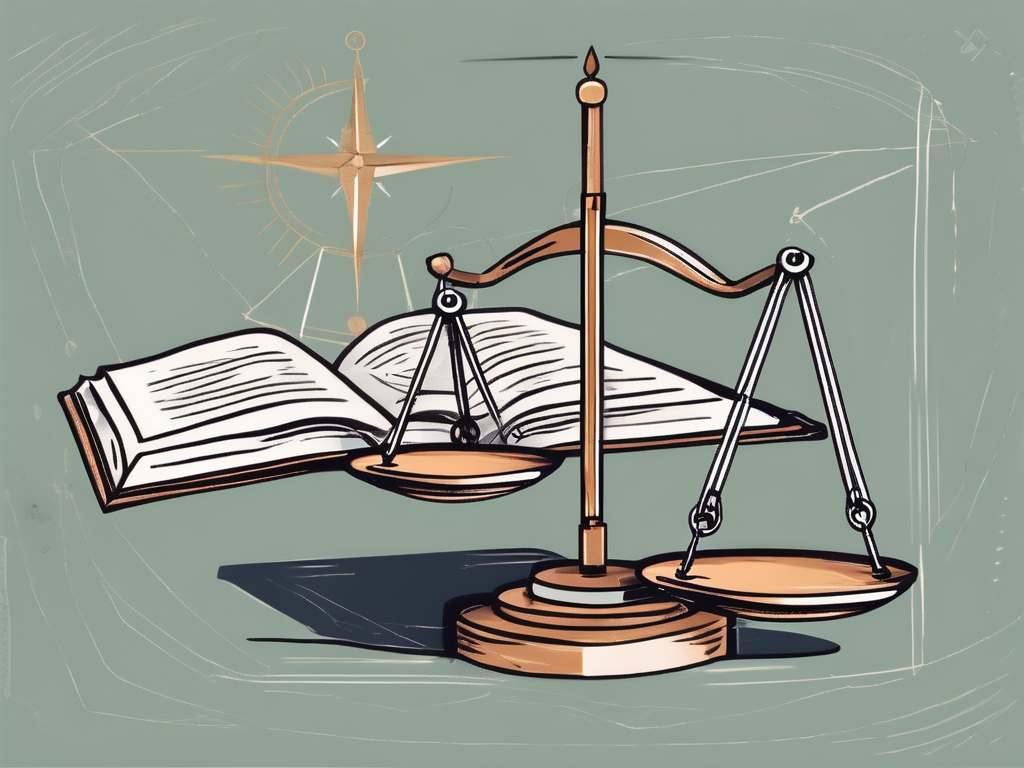The Bible is a spiritual guide that provides wisdom and guidance in various aspects of life. When it comes to the topic of medicine, the Bible offers insights on health, healing, medical treatments, ethics, and the role of faith. In this article, we will explore what the Bible says about medicine, its perspectives on health and healing, and how it can be integrated with modern medicine.
Understanding the Biblical Perspective on Health and Healing
According to the Bible, health and healing are significant aspects of God’s plan for humanity. The Scriptures emphasize the importance of taking care of our bodies and seeking healing when we are sick. It acknowledges both the physical and spiritual dimensions of health, recognizing that they often intertwine.
In the Bible, health is seen as a gift from God, and it is our responsibility to steward this gift well. This means not only taking care of our physical bodies through proper nutrition, exercise, and rest but also nurturing our spiritual well-being through prayer, worship, and seeking God’s guidance in all aspects of our lives.
One of the key elements in the biblical perspective on healing is faith. The Bible teaches that faith has the power to restore, transform, and bring about miracles. Many healing stories in the Bible highlight the role of faith in experiencing divine healing and restoration.
Throughout the Bible, there are numerous accounts of individuals experiencing healing through their faith. From the blind receiving sight to the lame walking, these miracles demonstrate that faith can be a catalyst for supernatural healing. It is important to note that biblical accounts of healing are not prescriptive formulas, but they do illustrate the power and potential of faith in the healing process.
The Role of Faith in Healing
One of the most well-known stories of healing through faith is the healing of the woman with the issue of blood. In Mark 5:25-34, we read about a woman who had been suffering from a bleeding condition for twelve years. She had spent all her money on doctors but had not found relief. However, when she heard about Jesus, she believed that if she could just touch His garment, she would be healed. In faith, she pressed through the crowd and touched Jesus’ cloak, and immediately her bleeding stopped. Jesus commended her faith and declared her healed.
This story illustrates the power of faith in healing. It shows that even in desperate situations where all hope seems lost, faith can bring about miraculous restoration. It also highlights the importance of persistence and determination in seeking healing. The woman did not give up but pressed through the crowd, believing that Jesus could bring healing to her body.
Old Testament References to Medicine
The Old Testament contains references to various forms of medicine and healing practices. In many instances, God provided medicinal plants and remedies for the physical well-being of His people. For example, in Exodus 15:26, God declares Himself as the ultimate healer and promises to protect His people from diseases if they follow His commandments.
In the book of Genesis, we see Jacob using a poultice of figs to heal his father Isaac’s eyes (Genesis 27:1-4). This shows that even in ancient times, people recognized the healing properties of certain plants and used them for medicinal purposes.
Another example is found in 2 Kings 20:7, where God instructs Hezekiah to apply a poultice of figs to his boil, and he would be healed. This demonstrates that God can use natural remedies as a means of bringing about healing.
New Testament References to Medicine
The New Testament continues to emphasize the significance of healing and care. In Luke 10:9, Jesus empowers His disciples to heal the sick, demonstrating His authority over diseases. The apostle Paul also recommends the use of medicinal remedies, as seen in his advice to Timothy to take wine for his stomach ailments (1 Timothy 5:23).
It is important to note that while the Bible acknowledges the role of medicine and natural remedies in healing, it also recognizes that ultimate healing comes from God. In James 5:14-15, it is encouraged to call upon the elders of the church to pray over the sick and anoint them with oil, believing in the power of God to bring about healing.
Overall, the biblical perspective on health and healing emphasizes the importance of faith, stewardship of our bodies, and seeking God’s guidance in all aspects of our well-being. It encourages us to trust in God’s power to bring about healing, whether through natural means or supernatural intervention.
The Bible and Modern Medicine
While the Bible provides insights on health and healing, it is essential to understand its context and how it relates to modern medicine. The Bible does not offer specific medical advice or prescribe a particular approach to health care. Instead, it provides moral principles and guidelines that can inform our decisions regarding medical treatments and ethical dilemmas.
Exploring the relationship between the Bible and modern medicine can be fascinating. It allows us to delve into the historical context of biblical times and understand how healthcare practices have evolved over the centuries. By examining the biblical views on medical treatments and the concept of spiritual healing versus medical healing, we can gain a deeper understanding of the intersection between faith and science.
Biblical Views on Medical Treatments
The Bible does not condemn the use of medical treatments or technological advancements. Instead, it encourages believers to seek the well-being of others and use available resources to alleviate suffering. This principle can be traced back to the teachings of Jesus, who showed compassion and healed the sick during his ministry.
As we explore the biblical narrative, we come across instances where medical treatments were used. For example, in the book of Luke, the apostle Paul advises his disciple Timothy to drink a little wine for his stomach ailments. This suggests that even in biblical times, there was an understanding of the medicinal properties of certain substances.
Furthermore, the Bible highlights the importance of caring for the physical body, which can be seen as a temple of the Holy Spirit. This emphasis on physical well-being encourages individuals to pursue medical treatments and take care of their health responsibly.
Spiritual Healing vs. Medical Healing
The Bible acknowledges both spiritual and medical healing, emphasizing that they are not mutually exclusive. While spiritual healing involves prayer, faith, and the power of God, medical healing employs scientific knowledge, medical expertise, and technological interventions.
Throughout the biblical narrative, we encounter stories of miraculous healings that can be attributed to spiritual intervention. These accounts serve as a testament to the power of faith and the belief in divine healing. However, the Bible also recognizes the importance of medical interventions in promoting healing and well-being.
By encouraging individuals to seek both spiritual and medical avenues for healing, the Bible acknowledges their complementary roles. It recognizes that while spiritual healing can bring comfort and peace, medical healing can provide tangible solutions to physical ailments.
It is important to note that the Bible does not promote a “one-size-fits-all” approach to healing. Instead, it encourages individuals to seek wisdom, discernment, and guidance from both spiritual and medical sources when making decisions about their health.
As we navigate the complexities of modern medicine, it is valuable to reflect on the biblical teachings and principles that can guide our approach to healthcare. By embracing a holistic view that integrates faith, science, and compassion, we can strive for a balanced and responsible approach to medical treatments and healing.
The Bible’s Guidance on Medical Ethics
Medical ethics is an important aspect of health care, and the Bible offers guidance and principles that can shape our understanding of ethical decision-making in the medical field.
In exploring the topic of medical ethics, it is essential to delve into the biblical principles that underpin our approach to medical decisions. The Bible emphasizes the sanctity of life and the inherent value of every human being. This profound principle leads to a deep-rooted respect for life from conception to natural death, influencing decisions regarding medical interventions, end-of-life care, and complex ethical dilemmas.
When faced with medical decisions, the Bible encourages us to consider not only the physical well-being of the individual but also their autonomy and the preservation of their human dignity. These factors play a crucial role in shaping our understanding of medical ethics and guide us in making decisions that align with biblical teachings.
Biblical Principles for Medical Decisions
One of the fundamental biblical principles for medical decisions is the concept of the sanctity of life. The Bible teaches us that every human life is sacred and valuable, regardless of age, health condition, or any other factor. This principle compels us to approach medical decisions with the utmost care and reverence for the gift of life.
Furthermore, the Bible emphasizes the importance of considering the well-being of the individual when making medical decisions. It encourages us to prioritize the physical, emotional, and spiritual needs of the patient, recognizing that each person is fearfully and wonderfully made in the image of God.
Additionally, the Bible highlights the significance of respecting the autonomy of individuals in medical decision-making. While medical professionals play a vital role in providing guidance and expertise, the Bible recognizes the importance of allowing patients to have a voice in their own healthcare choices. This principle promotes a patient-centered approach that values the individual’s right to make informed decisions about their own well-being.
The Bible on End-of-Life Care
End-of-life care is a topic that the Bible addresses, providing insight into how believers should approach this delicate phase of life. The Bible emphasizes the importance of compassion, comfort, and support for the terminally ill, recognizing the inherent dignity and worth of every person until their last breath.
When it comes to end-of-life care, the Bible encourages believers to provide physical, emotional, and spiritual care to those nearing the end of their earthly journey. This holistic approach recognizes that end-of-life issues encompass more than just medical treatment; they involve the provision of comfort, love, and support to both the patient and their loved ones.
While the Bible does not explicitly endorse or reject specific medical treatments or interventions in end-of-life care, it emphasizes the value of preserving life and respecting the dignity of the dying. This principle guides believers to approach end-of-life decisions with compassion, wisdom, and a deep understanding of the sanctity of life.
In conclusion, the Bible offers profound guidance on medical ethics, shaping our understanding of ethical decision-making in the medical field. Its emphasis on the sanctity of life, the well-being of the individual, and the preservation of human dignity provides a solid foundation for navigating complex medical situations. By aligning our medical decisions with these biblical principles, we can strive to uphold the highest ethical standards and honor the divine gift of life.
The Role of Prayer in Health and Healing
Healing Miracles in the Bible
The Bible records various instances of healing miracles, illustrating the power of prayer and the faith that can lead to miraculous interventions. These accounts remind us that prayer has the potential to bring about healing and restoration, both physically and spiritually.
The Power of Prayer in Healing
Prayer is a significant component of the believer’s spiritual journey. It provides comfort, strength, and a connection with the divine. In the context of health and healing, prayer can bring about peace, hope, and a sense of well-being. While prayer does not guarantee physical healing in every circumstance, it can bring comfort, spiritual healing, and a deeper sense of faith.
Conclusion: Balancing Faith and Medicine
When considering the biblical perspective on medicine, it is crucial to strike a balance between faith and modern medical practices. The Bible highlights the importance of both spiritual and physical well-being, recognizing the potential of faith in healing while acknowledging the valuable contributions of medicine and scientific advancements.
Integrating Biblical Teachings with Modern Medicine
Integrating biblical teachings with modern medicine involves recognizing the value of both perspectives and seeking holistic approaches to health care. By considering the teachings of the Bible alongside medical expertise, individuals can make informed decisions that promote both physical and spiritual well-being.
The Bible’s Message for Health Care Professionals
For health care professionals, the Bible offers a reminder of the sacred nature of their profession. It calls them to serve with compassion, respect, and integrity, while also acknowledging the limitations of human knowledge and interventions. The Bible encourages health care providers to view their work as a ministry of healing and an opportunity to demonstrate God’s love and care for His creation.
In conclusion, the Bible provides insights and guidance on medicine, health, healing, and ethical considerations. It encourages individuals to seek both spiritual and medical avenues for well-being, recognizing the complementary roles they play. By integrating biblical teachings with modern medicine, we can approach health care with holistic perspectives that encompass the physical, emotional, and spiritual aspects of human life.












